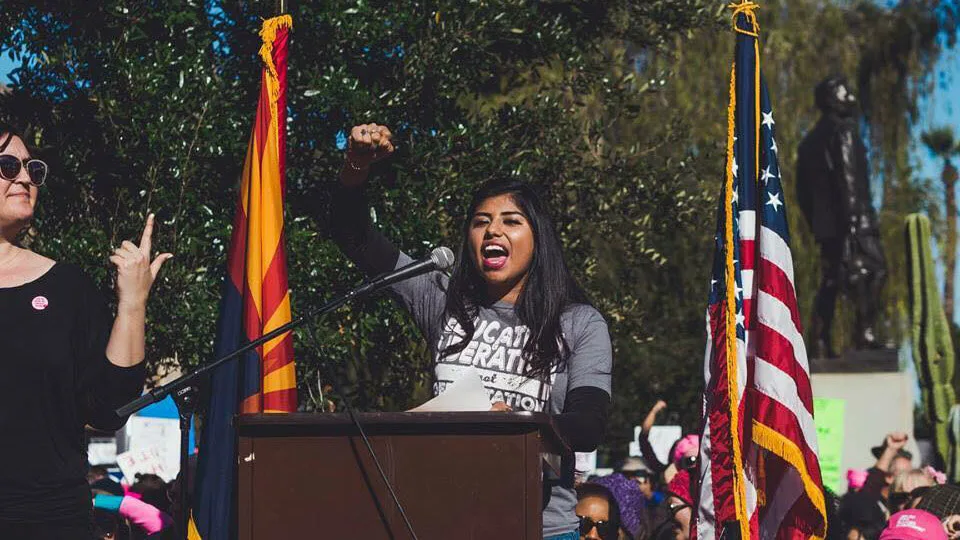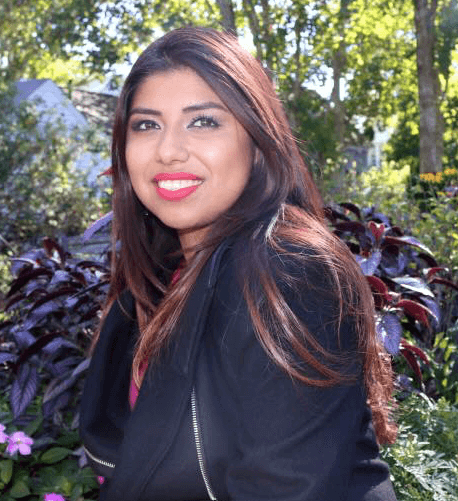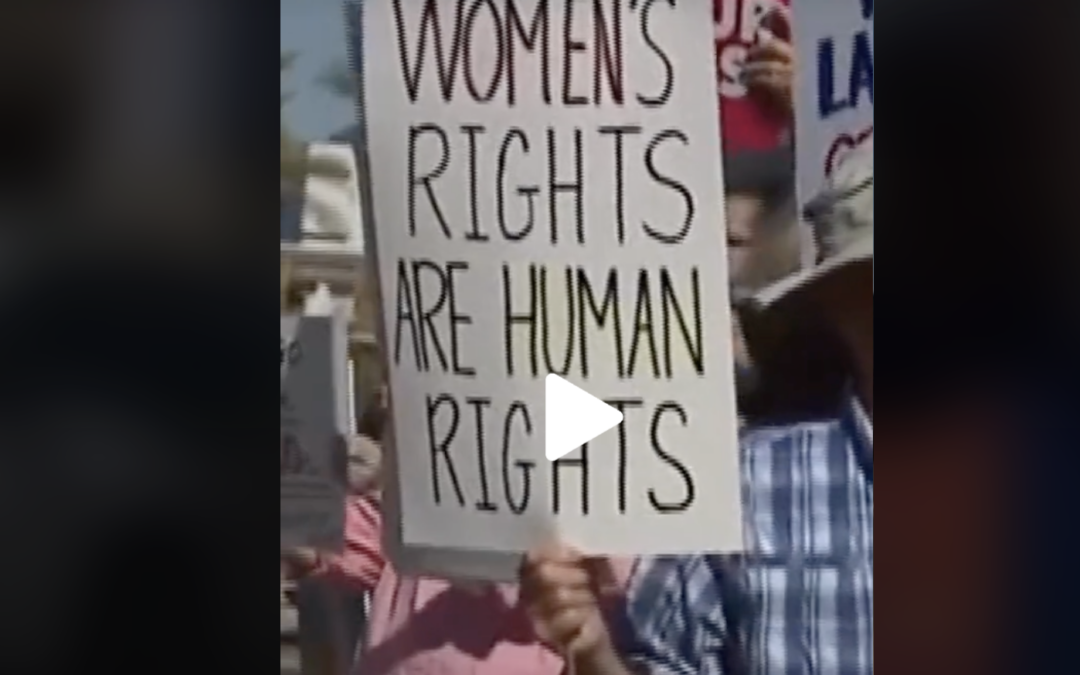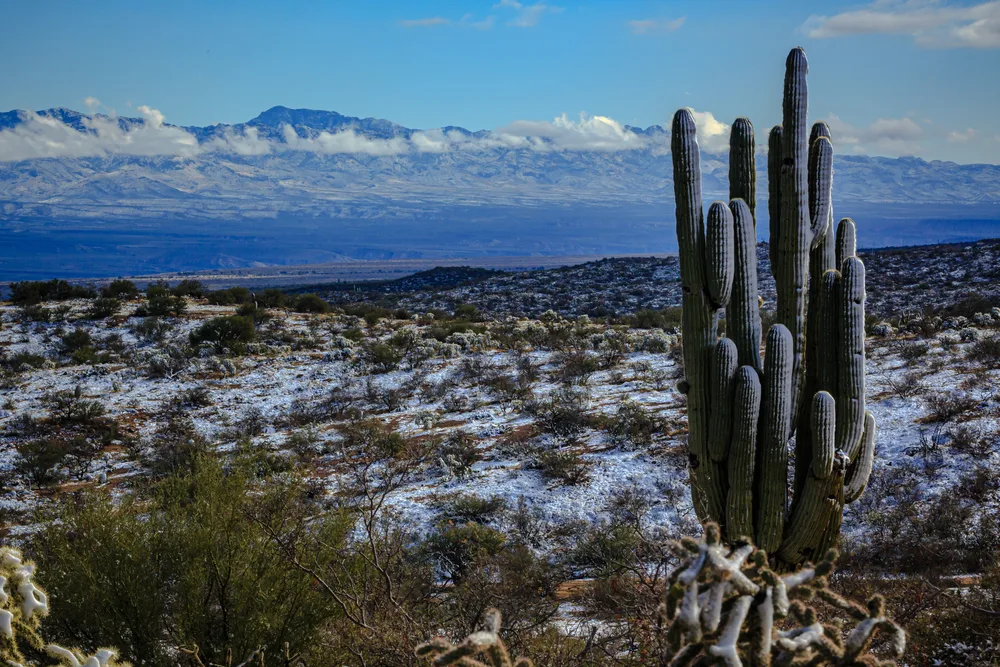
Photo courtesy of Jessica Rubio
As a child, she was taught to keep a low profile, be a “good citizen,” and to keep her immigration status a secret.
The United States Supreme Court’s pivotal decision to let the Deferred Action for Childhood Arrivals (DACA) stand has been a long time coming for hundreds of thousands of recipients who were living in limbo.
One of those Dreamers is Jessica Rubio, who came to the U.S. in 2006 when she was 14 years old. She tells The Copper Courier that she was told to keep a low profile, to be a “good citizen,” and to avoid talking to her school counselor too much for fear that she would find out about Jessica’s immigration status.
She graduated high school in 2010, just as Senate Bill 1070 was being signed into law by Arizona Gov. Jan Brewer. The bill, otherwise known as the Support Our Law Enforcement and Safe Neighborhood Act, would allow law enforcement officers to check the immigration status of people they suspected of being in the country illegally.
Jessica decided to stay in Arizona following her graduation. A year later in July 2011, her brother was deported.

“That’s when I decided to get involved, and to learn how our systems worked, who decided that my family shouldn’t be together, and how we could impact those elections.”
Jessica applied to DACA in October of 2012. She was working to get out the vote when the program was announced. She helped organize town halls to educate others on DACA so that they could also apply.
Waiting for the Supreme Court to make a final decision on DACA was difficult for Jessica.
“A lot of anxiety,” she said. “Not knowing if I was going to continue to work, or work on my Master’s–as I have it planned for 2021–was driving me crazy.”
She purchased a house right before coronavirus hit and her work permit was set to expire in November. So there was a lot riding on the Court’s decision on DACA because it meant the difference between Jessica having an income or not.
So how did she feel after finally hearing the Supreme Court decision on DACA?
“To be honest, I was shocked when I learned about it, I felt some type of relief, happiness, and much more. Then I started crying, I just had too many emotions, it was super hard to focus on work.”
In 2017, she helped create the Immigration Scholarship Hustle. It’s a program that helps undocumented students prepare for college, regardless of their current immigration status.
“Yes, 800K of us are safe, but what about our students — the people who would have qualified for DACA but didn’t because the program stopped receiving new applications? What about our parents and the many students who aged out of the program?”
There is still much more to do. Jessica said now organizers have to continue to register people to vote, and motivate them to vote.
“We have to make sure that we elect a new president, one that will not put our lives in jeopardy,” said Jessica. “We need to protect the lives of black and brown people by defunding police, and prevent that more kids are kept in cages when they are looking for asylum because their lives are at risk in their home country.”
On June 19, Jessica shared that former presidential candidate Elizabeth Warren, whose campaign she worked on, had called her after the Supreme Court DACA decision.
For those who would like more information on DACA and on how to help, Jessica recommends United We Dream, as well as the Arizona Dream Act Coalition.
She also founded ALAS (Academic and Leadership Accelerator for Service). Find more information about the organization on their Facebook page.
Politics

Trump says he’s pro-worker. His record says otherwise.
During his time on the campaign trail, Donald Trump has sought to refashion his record and image as being a pro-worker candidate—one that wants to...

VIDEO: Hundreds show up in Scottsdale to support reproductive rights
@coppercourier Days after the Arizona Supreme Court ruled to enforce a long-dormant law that bans nearly all abortions, hundreds took part in a...
Local News

US court rejects a request by tribes to block $10B energy transmission project in Arizona
In Arizona, work was halted briefly in November amid pleas by tribes to review environmental approvals for the San Pedro Valley. ALBUQUERQUE, N.M....

What to know about Trump’s legal issues
Over the past year, former president Donald Trump has become the center of not one, not two, not three, but four criminal investigations, at both...




